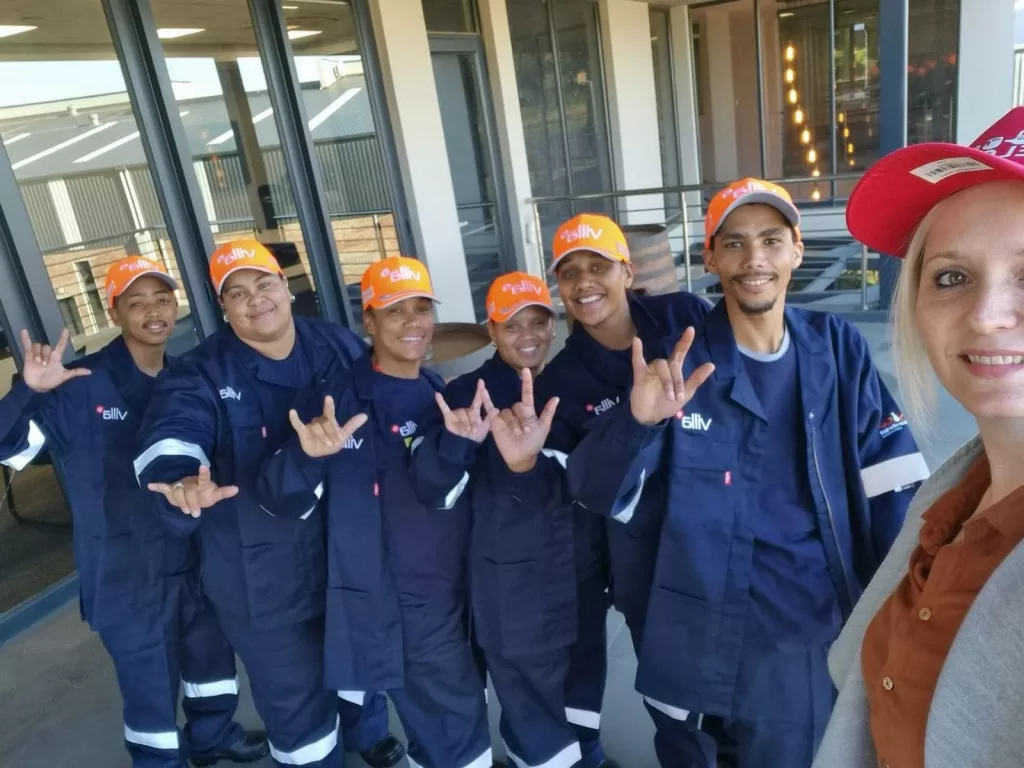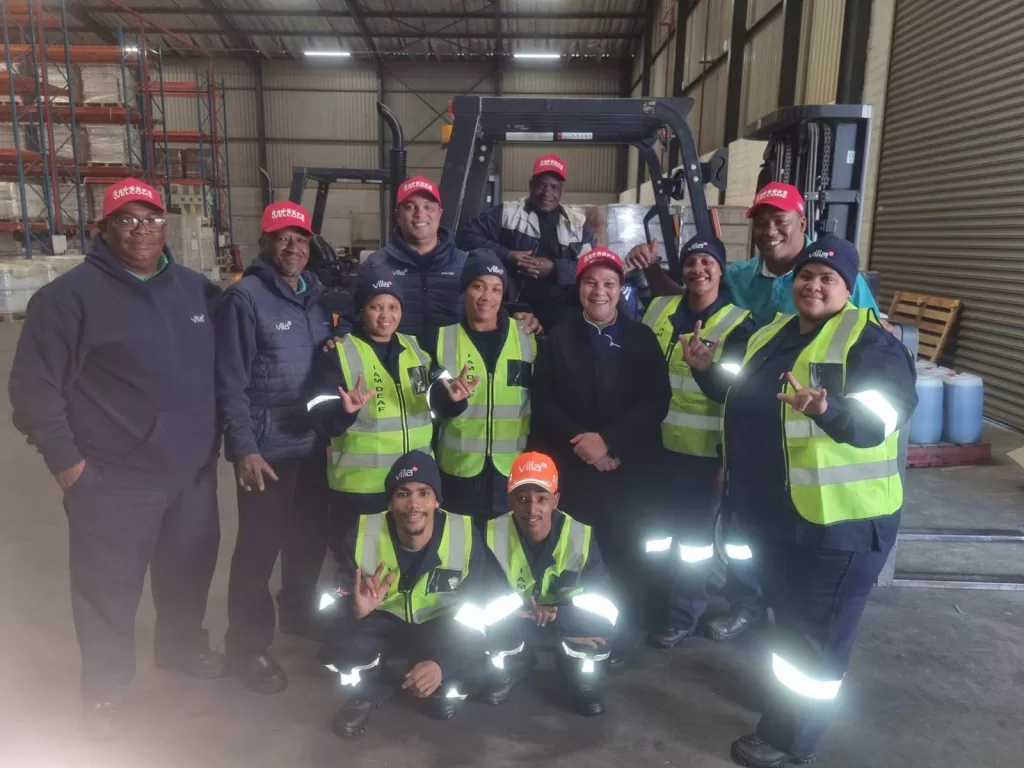WinField United South Africa (WUSA)’s sustainability ethos of product, planet, practices, and people had the company reach out to Employ and Empower Deaf (eDeaf), an organisation dedicated to training deaf people. In support of the people pillar, the idea was to help WUSA’s subsidiary Villa Crop Protection (Villa) recruit nine deaf learners this year for the Paarl office in the Western Cape and Olifantsfontein operations in Gauteng. These are all young people in their 20s who are largely reliant on sign language or writing for communication.
Malanie Brits, Human Resource Manager of WinField United South Africa explained, “The deaf learners who will work in-house for the next year are enrolled for a NQF level: Wholesale and Retail Operations qualification, which is one of three learnerships that eDeaf supports with trained facilitators.”
While enrolled in the learnership, the learners will spend one week of every month studying academic theory and three weeks acquiring on-the-job experience. They will work in the warehouse or formulation operations. This practical experience greatly enhances their chances of finding employment upon completion of the learnership.
The learners will be rotated throughout the organisation. They have begun their learnership journey in the company with a safety session, including Hazchem training, which complies with various health and safety legislation requirements in South Africa, to alert them to the potential hazards of working in a warehouse with moving machinery.
Understanding each other
Ahead of welcoming the learners into the organisation, six employee sensitisation sessions were hosted, with the aim of creating awareness about the world of the deaf and deaf culture. Employees were also able to volunteer for Villa sponsored sign language courses.

During the sensitisation sessions facilitated by eDeaf, employees were educated on the daily challenges faced by deaf individuals. They learned about the isolation and misunderstandings that deaf people often encounter and were introduced to some basic phrases in sign language.

Employees discovered that effective communication with Deaf people requires creativity, as few rely on lip reading and there are varying degrees of deafness, with many unable to benefit from hearing aids. This experience also broke common misconceptions, revealing that deaf individuals are neither less intelligent nor less capable than hearing individuals. They are proud of their Deaf identity, often writing “Deaf” with a capital D to emphasise their pride and strong sense of community.
Brits continued, “We were so delighted with the interest shown for the sensitisation sessions. They provided a fun and interesting approach to removing any stigmas staff may have had. Attendees became more relaxed around communicating and engaging with the learners, which has benefited the learners as well as the organisation”.
The future
Villa plans to give the learners extra-curricular training on various projects and sites, over the next year, which would give them added value if they want to consider a career in the agricultural industry. Once they have qualified, if not before, they will be able to apply for available positions in any of the subsidiaries at WUSA.
“This positive experience has encouraged us to consider repeating the programme in future, which will foster a greater sense of integration and diversity in our organisation,” concluded Brits.




























